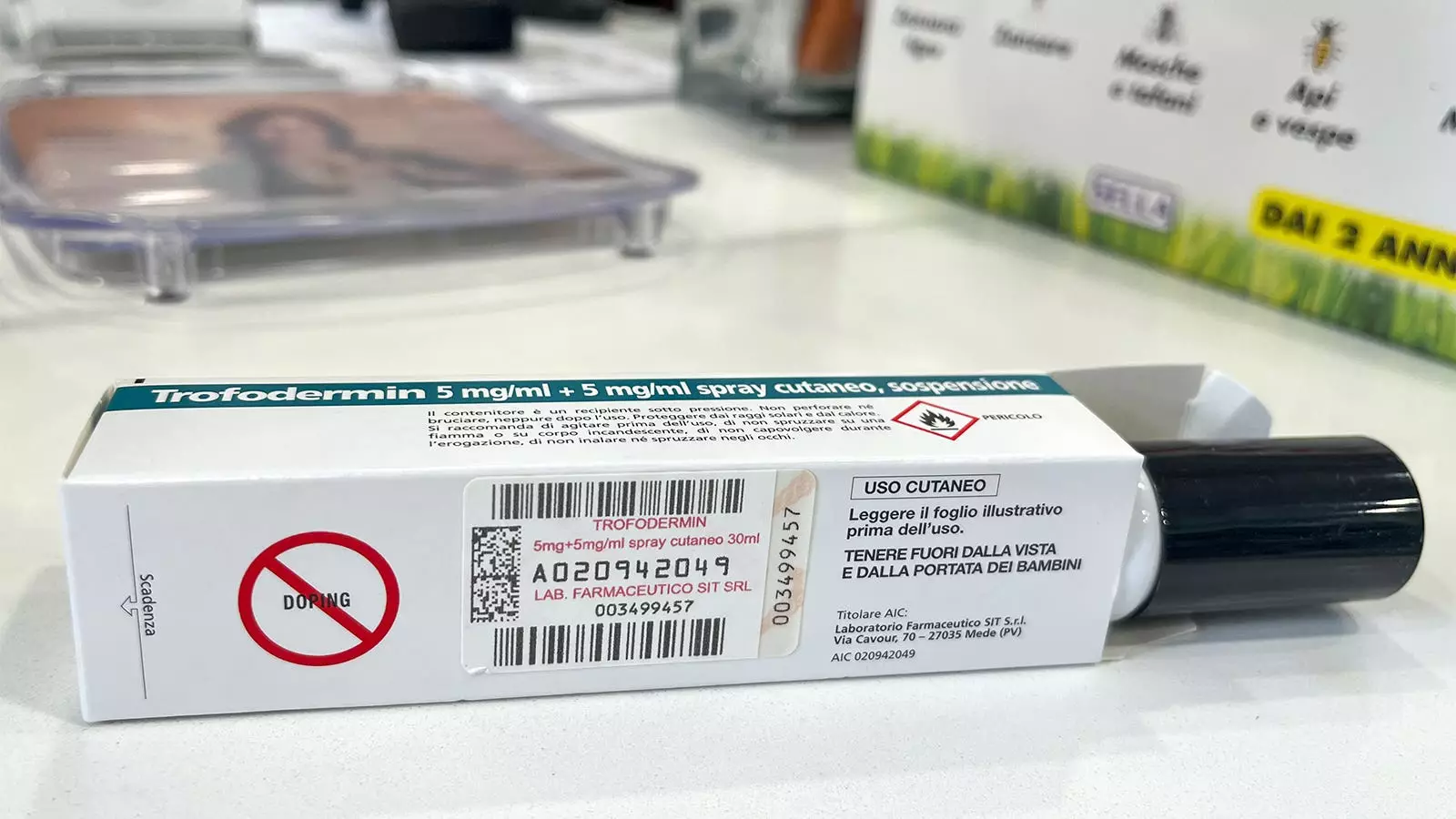Italy’s regulatory framework surrounding doping substances is under scrutiny following the recent doping scandal involving tennis star Jannik Sinner. The availability of Trofodermin, an over-the-counter spray containing the banned anabolic steroid clostebol, has raised questions about the ease of access to performance-enhancing drugs in the country. The presence of a warning label on the box, but not the product itself, poses a significant risk for athletes and individuals unknowingly consuming banned substances. The reliance on individuals to adhere to these warnings, coupled with the lack of stringent regulations, has highlighted the loopholes in Italy’s anti-doping measures.
Attorney Giovanni Fontana’s revelation of handling numerous doping cases linked to Trofodermin underscores the pervasive nature of the issue. The use of Trofodermin for legitimate medical purposes, such as treating cuts and scrapes, has inadvertently led to positive doping tests for athletes like Jannik Sinner. The clandestine transmission of clostebol through casual contact or shared medication highlights the need for greater awareness and oversight in the sporting community. The failure to detect these trace amounts of banned substances reinforces the challenges faced by anti-doping agencies in combating the use of performance-enhancing drugs.
The legal ramifications of doping scandals, such as the one involving Jannik Sinner, extend beyond the individual athlete to their support staff. The complicity of Sinner’s trainer and physiotherapist in procuring and administering Trofodermin underscores the shared responsibility in upholding anti-doping regulations. The potential for civil lawsuits against individuals involved in the doping scandal introduces a new dimension to the consequences faced by athletes embroiled in such controversies. The scrutiny faced by support staff and their role in facilitating doping practices highlights the need for ethical standards and accountability in sports management.
The disparity in regulations governing doping substances across different countries further complicates the efforts to maintain a level playing field in sports. The classification of clostebol as a “controlled substance” in the United States, with strict prescription requirements, starkly contrasts with its availability in Italy as an over-the-counter medication. The divergent approaches to regulating performance-enhancing drugs underscore the challenges faced by international sports organizations in enforcing uniform anti-doping standards. The need for harmonization of doping regulations and increased collaboration between countries is imperative to ensure the integrity of competitive sports on a global scale.
The ongoing scrutiny surrounding Jannik Sinner’s doping scandal serves as a wake-up call for the sporting community to reevaluate existing anti-doping protocols and regulatory frameworks. The vulnerabilities exposed by the Trofodermin controversy highlight the need for comprehensive reforms in monitoring and regulating the use of banned substances. From enhancing warning labels on medication packaging to imposing stricter penalties for doping violations, there is a pressing need for proactive measures to safeguard the integrity of sports and protect the health of athletes. The collective responsibility of athletes, support staff, governing bodies, and regulatory authorities is essential in upholding the principles of fair play and sportsmanship in the face of evolving challenges posed by doping practices.
The doping scandal involving Jannik Sinner sheds light on the complex interplay between regulatory oversight, ethical conduct, and legal accountability in the realm of professional sports. The repercussions of doping extend far beyond individual athletes, encompassing a web of stakeholders implicated in facilitating or combating the use of performance-enhancing drugs. By addressing the systemic loopholes, cultural norms, and regulatory gaps that enable doping practices, the sporting community can strive towards maintaining a level playing field and upholding the values of honesty, integrity, and excellence in sports.

Leave a Reply